Why Are Your New Tires Losing Air: Causes and Solutions
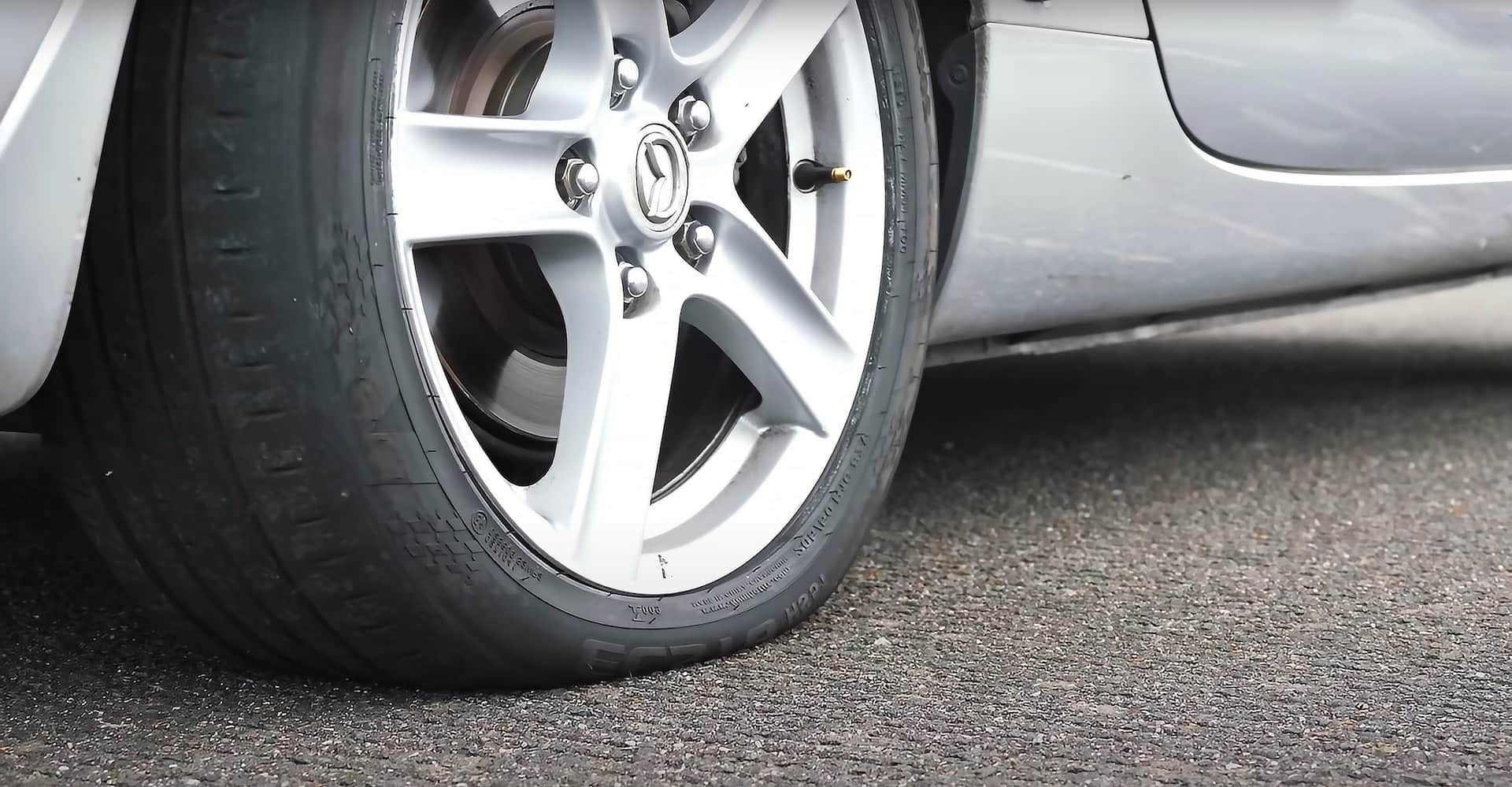
Having properly inflated tires is essential for optimal safety and performance when driving. Underinflated tires can lead to a loss in fuel efficiency, poor handling, and increased wear. Most importantly, it can also be dangerous when driving and can increase the risk of an accident.
In this blog post, we’ll explore why new tires might be losing air, what impact this has on our safety and vehicle maintenance, and what steps you should take if you experience this issue with your own tires.
Key Takeaways
Is it normal for new tires to leak air?
It is not normal for new tires to lose pressure. If you have recently purchased new tires and one or more of them are losing air pressure, it is important to take them back and get them checked out.
A loss of 1-3 psi per month is considered normal, but if you notice a significant drop in air pressure, there may be an underlying issue.
Causes of New Tire Losing Air Pressure
Common reasons for tire pressure loss include damaged rim (f.e. cracks), faulty valve stems, and mounting problems.
1. Valve stem issues
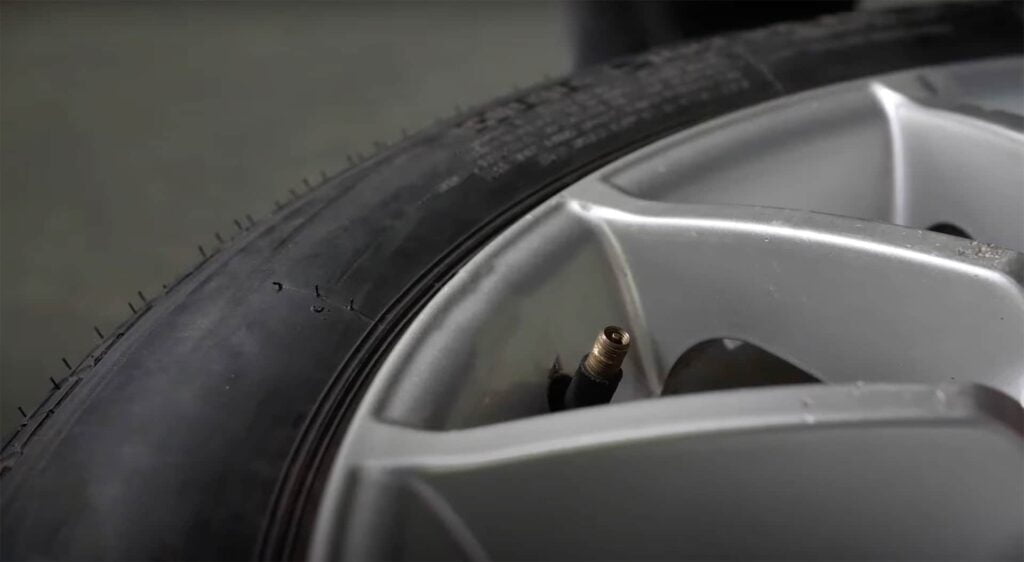
Valve stem issues is one of the most common causes of new tires losing air. These issues can arise when the tire is installed or when it is being serviced. If the valve stem is worn, eroded, or bent at an angle, it can cause a leak to develop.
Additionally, if dirt or foreign particles have begun to accumulate around the air valve stem, this can cause a gap in the seal leading to an air leak as well.
2. Manufacturing defects

Tire manufacturing defects can also be a cause of air leaking from new tires. When a tire is manufactured, it is possible for there to be imperfections in its construction that can cause air to escape from the tire.
3. Bead leaks
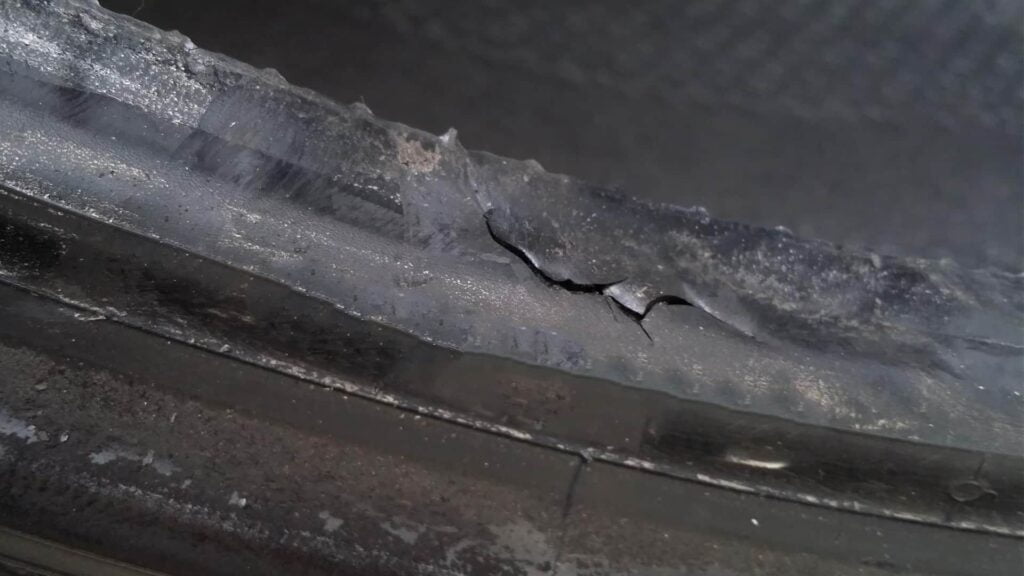
The bead of the tire is where it makes contact with the wheel rim and creates a seal that retains air inside the tire. If this bead is not properly sealed or has been damaged during the installation, air can leak out from the gap between the tire and the wheel.
4. Rim leaks
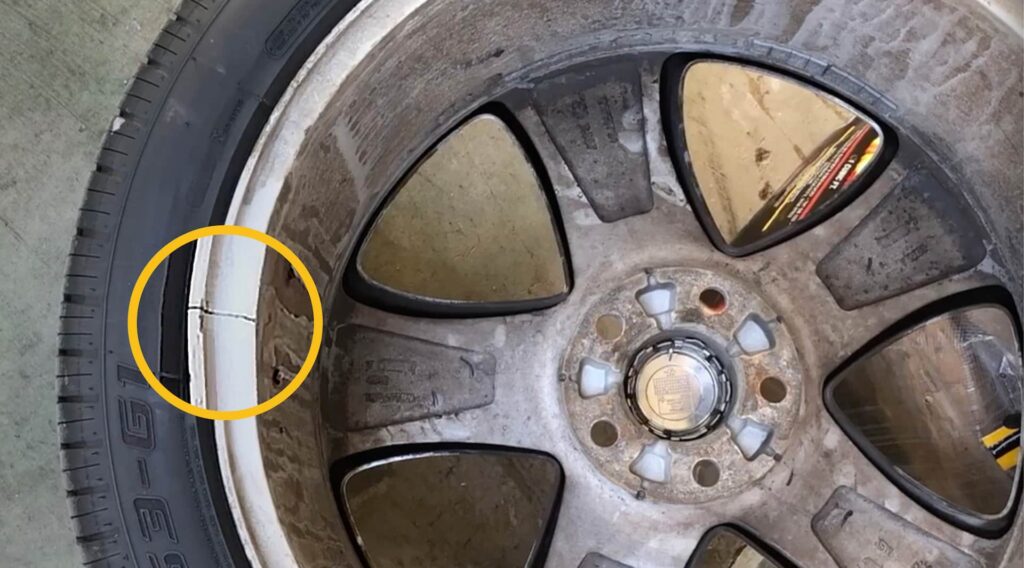
Rim leaks can occur due to a damaged, corroded, or bent wheel, which can affect the seal of the tire on the wheel. If there is a crack in the rim or corrosion has caused it to become weakened or uneven, then air can escape the damaged wheel through this gap.
5. Temperature Change
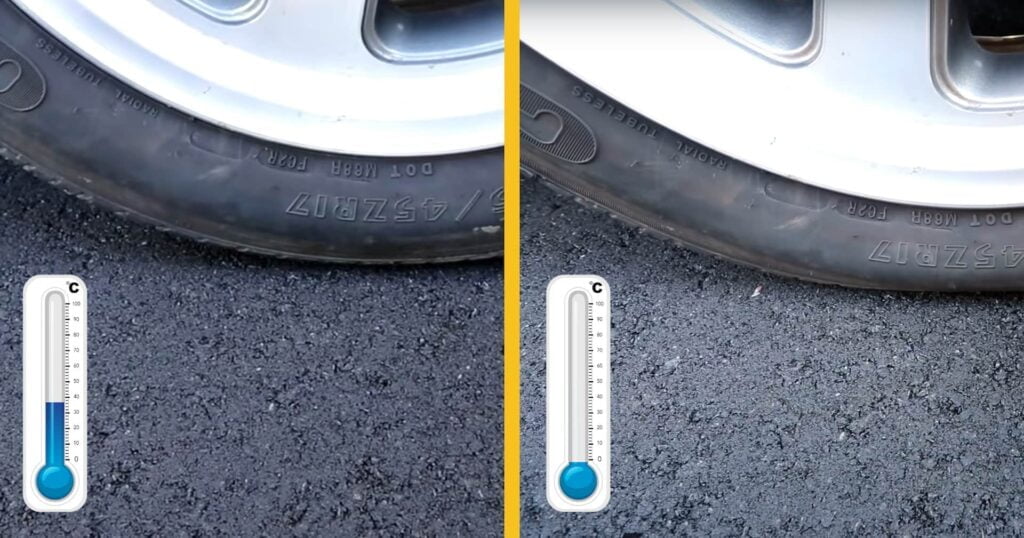
Cold weather often leads to tires losing air pressure. Air molecules become denser in colder temperatures, meaning that the overall air pressure decreases and causes the tire to leak air.
According to the tire manufacturer Continental, it is normal for the tire’s air pressure to decrease 1-2 PSI with every 50°F drop in temperature.
What Can You Do If Your New Tires Are Losing Air
The best you can do is to bring your vehicle to a professional mechanic or tire specialist. This will ensure that the issue is correctly diagnosed and fixed in a safe and timely manner. A professional tire shop will be able to inspect the tires further and offer more insight into the root cause of the problem.
If the issue turns out to be a manufacturing defect or poor installation, then the manufacturer or installer can help resolve this without any additional charges.
If you’d like to diagnose the issue yourself, start by visually inspecting the outside of the tire for any visible bulges, cracks, tears or other signs of damage.
If you can’t visually spot the damage, try the good old-fashioned way – spray your tire with soapy water. Mix some detergent in, about 20%, to make it a little thicker. Look for bubbles, especially in the areas we mentioned earlier. It’s best to do this when your tires are hot from driving and have full air pressure. Another option is taking off your wheels and putting them in a bucket of water.
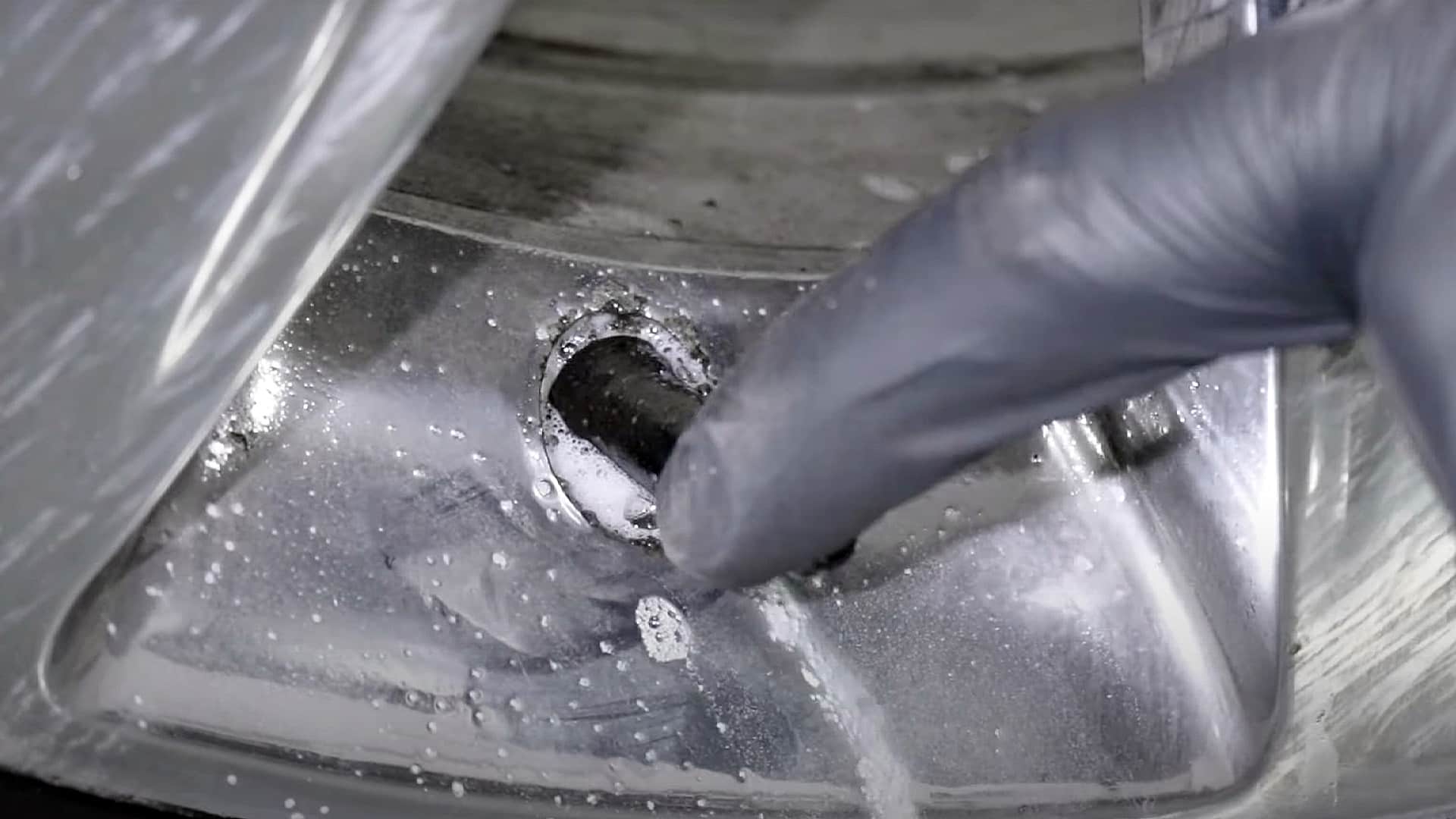
Sometimes, a slow leak won’t show itself until you’re on the road driving. That could mean you have a tiny hole that only opens up when your tire heats up during the drive. The heat expands the hole and makes the air come out with more force.
The Importance of Addressing Air Loss in New Tires
1. Safety
Driving on underinflated tires can have serious consequences. The decreased tire pressure causes the tire to flex more, decreasing traction and leading to a higher chance of skidding or hydroplaning.
2. Tire lifespan
Underinflated tires wear more quickly than properly inflated tires. This is because they are flexing and expanding more than they should be, which causes the tire material to break down faster.
3. Fuel efficiency
Driving on underinflated tires can lead to a decrease in fuel efficiency. This is because the extra flexing of the tire causes it to work harder, requiring more energy from the engine and resulting in lower gas mileage.
Final words
It is important to address air loss in new tires as soon as possible, as losing too much air pressure can result in decreased tire performance and safety. If you experience air loss in your new tires, inspect them for any signs of damage or wear.
If any are found, bring your vehicle to a professional mechanic or tire specialist who will be able to diagnose and fix the issue correctly and safely. Proper tire maintenance is essential to ensuring that your tires perform effectively and safely.
Regularly checking your tire pressure, inspecting them for signs of damage or wear, and taking preventative measures can greatly extend the lifespan of your tires and provide you with greater peace of mind.
FAQ
Why Is My Tire Losing Air Overnight
Many drivers have encountered the problem of their tires leaking air overnight. The common causes of tires leaking air are punctures or a slow leak due to damage to the rubber and metal parts of the tire or wheel.
